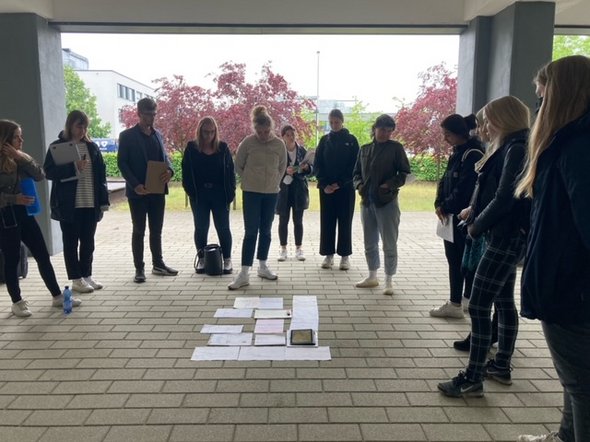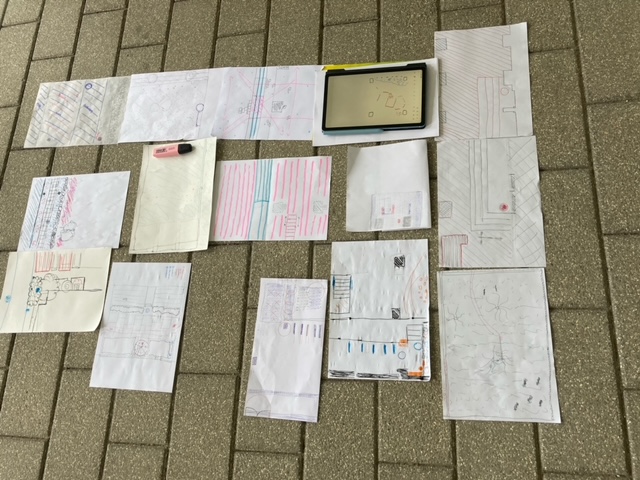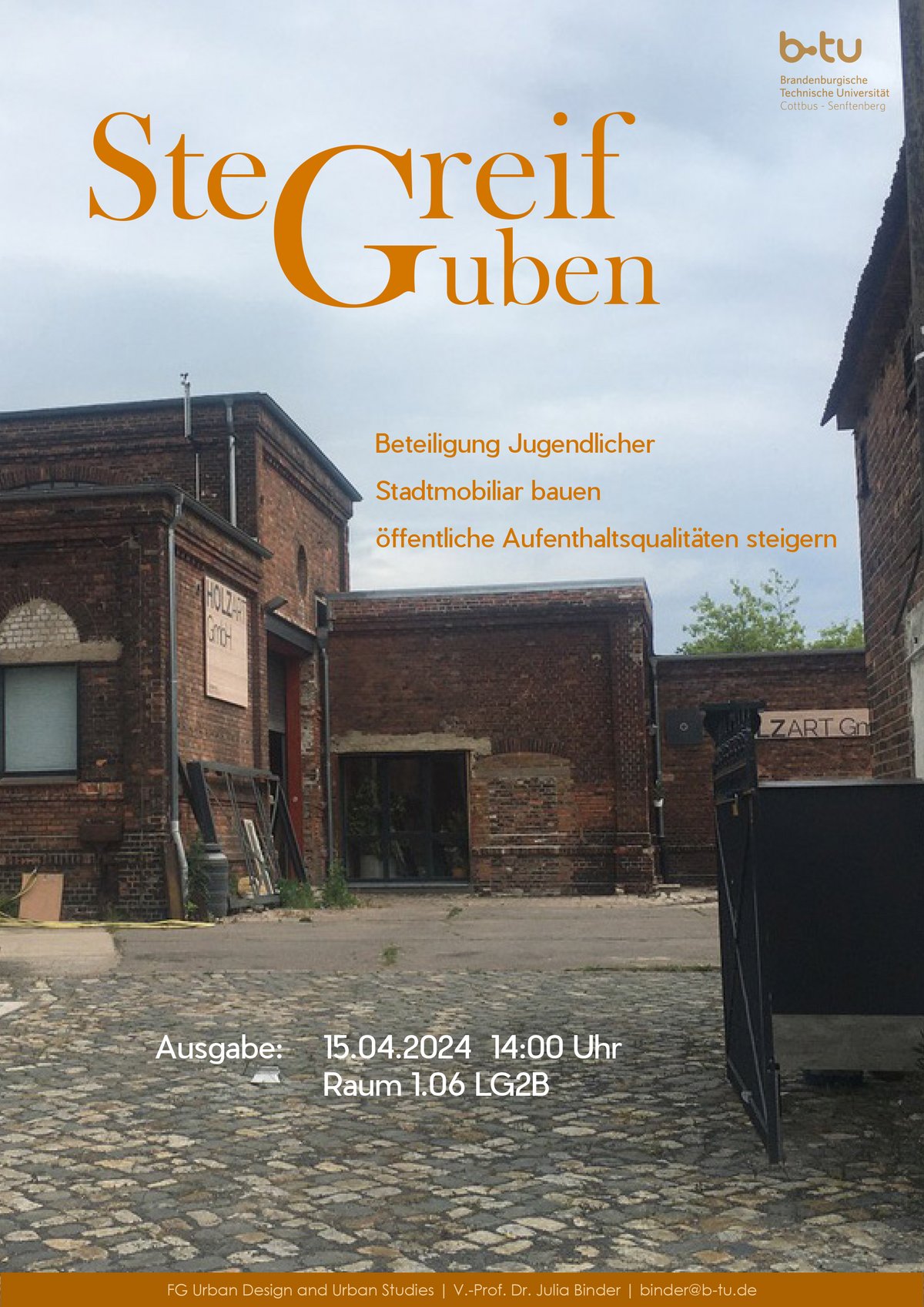Master
summer semester 2024
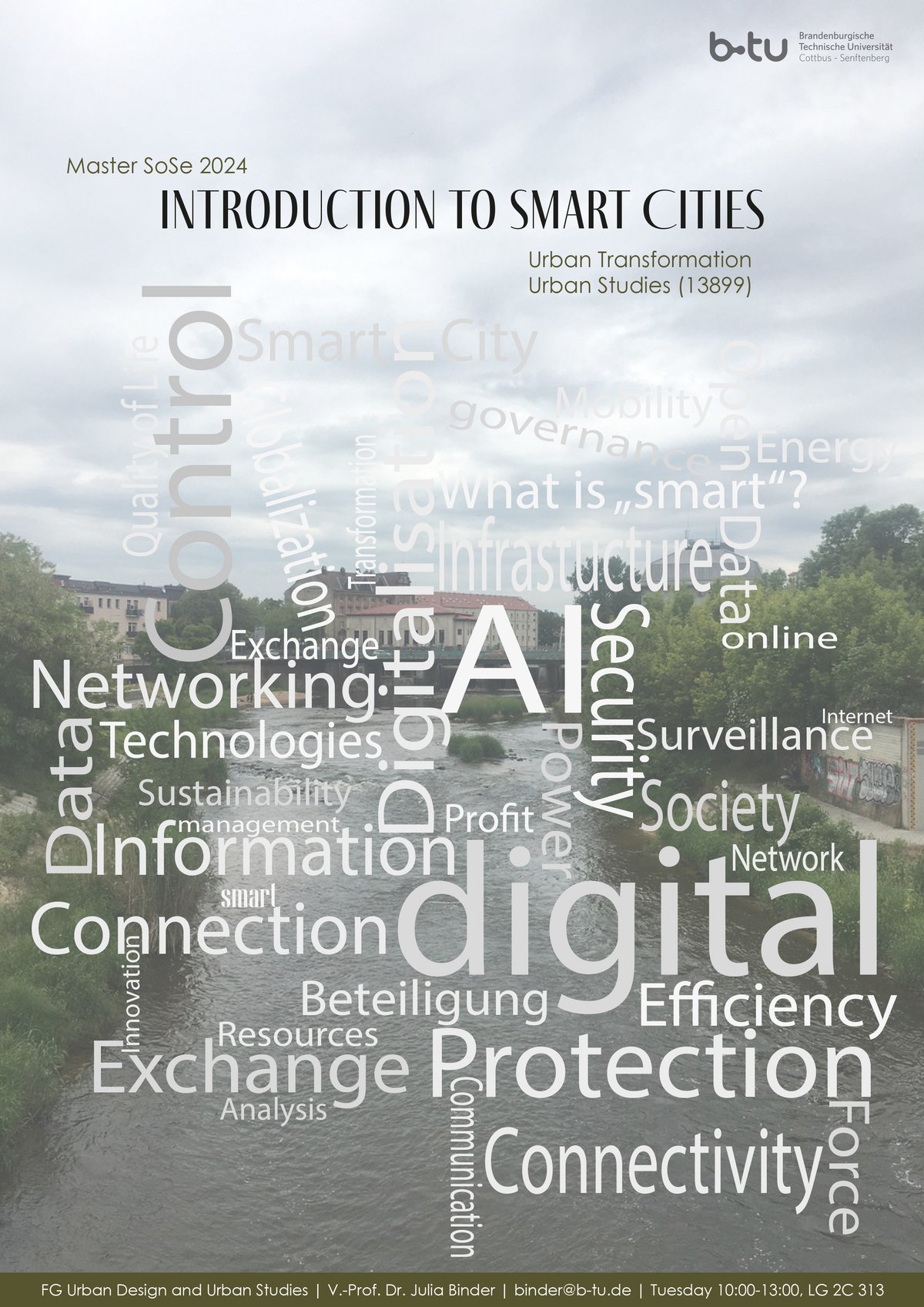
1. Meeting: Tuesday, April 16th, 10am, room 313, building 2C
Moodle: SoSe 24 | 643104 | Introduction to Smart Cities
How do we shape our future cities? Can digital strategies in a transformative region create new sustainable visions for addressing local challenges in a peripheral border region? To what extent can the use of ICT lead to an improvement in quality of life? The notion of the Smart City is a guiding principle that is omnipresent in urban planning. However, data as a new resource also raises questions about data protection, data security and data sovereignty, which are addressed in critical urban research. Smart city strategies emerge from the interaction of public, private, and civil society actors, which are to be researched, analyzed, and accompanied in the real-world laboratory in Guben.
The master seminar "Introduction to Smart Cities" imparts both theoretical and practical knowledge. In planning theory, knowledge about sustainable urban development and smart cities is conveyed by reading and analyzing German and English language texts. The practical planning knowledge revolves around the question of what challenges arise in the implementation phase of digital measures in a peripheral border city. The seminar is offered in cooperation with the Model Projects Smart Cities (MPSC) Guben, including a workshop, with day trips planned to Cottbus and Berlin. Additionally, a stegreif in Guben is offered. It is aimed at master's students in urban planning, architecture, and heritage studies.
Summer semester 2023
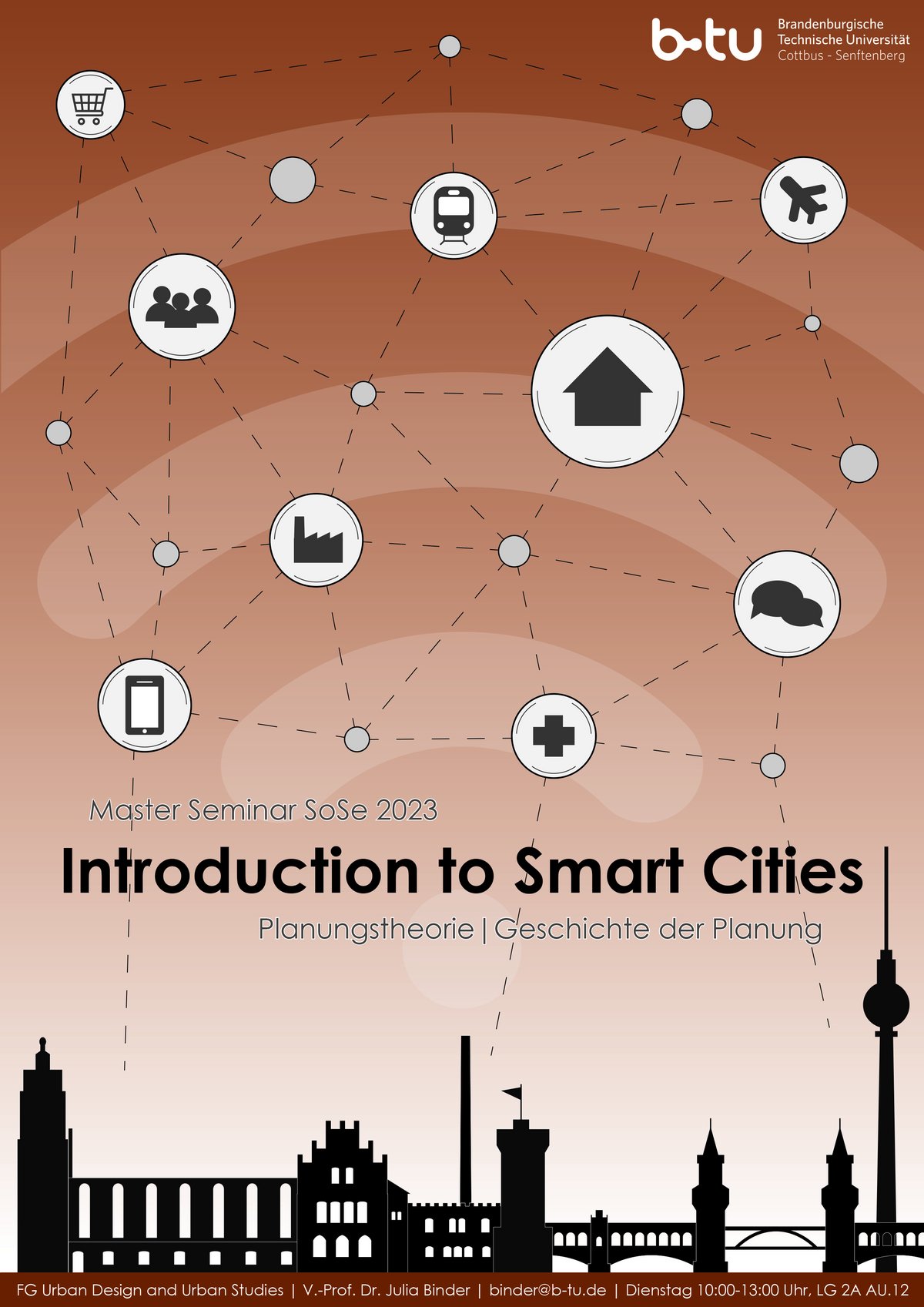
How do we shape our cities of the future? Can digital strategies in a transforming region create new sustainable visions for tackling local challenges? To what extent can the use of information and communication technologies (ICT) lead to an improvement in quality of life? The smart city is a guiding principle that is omnipresent in urban planning. However, data as a new resource also raises questions about data protection, data security and data sovereignty, which are addressed in critical urban research. Smart city strategies emerge from the interaction between public, private and civil society actors, which are to be researched, analyzed and accompanied in the Guben real-world laboratory. As a shrinking border town in a peripheral location, students will have the opportunity to shape and support transformative agendas over the course of two semesters.
The Master's seminar Introduction to Smart Cities imparts theoretical and practical knowledge. In planning theory, knowledge on sustainable urban development and smart cities is imparted by reading and working on texts in German and English. The practical planning knowledge revolves around the question of what challenges are faced in the implementation phase of digital measures in a peripheral border city. The seminar is offered as part of a cooperation with the Model Projects Smart Cities (MPSC) Guben including a workshop, day excursions to Cottbus and Berlin are planned. An impromptu seminar and summer academy will follow in Guben in the 2024 summer semester. It is aimed at Master's students of urban planning, architecture and heritage studies.
Winter semester 2022/23
Urban Design
Summer semester 2022
Planning and the common good - urban mapping
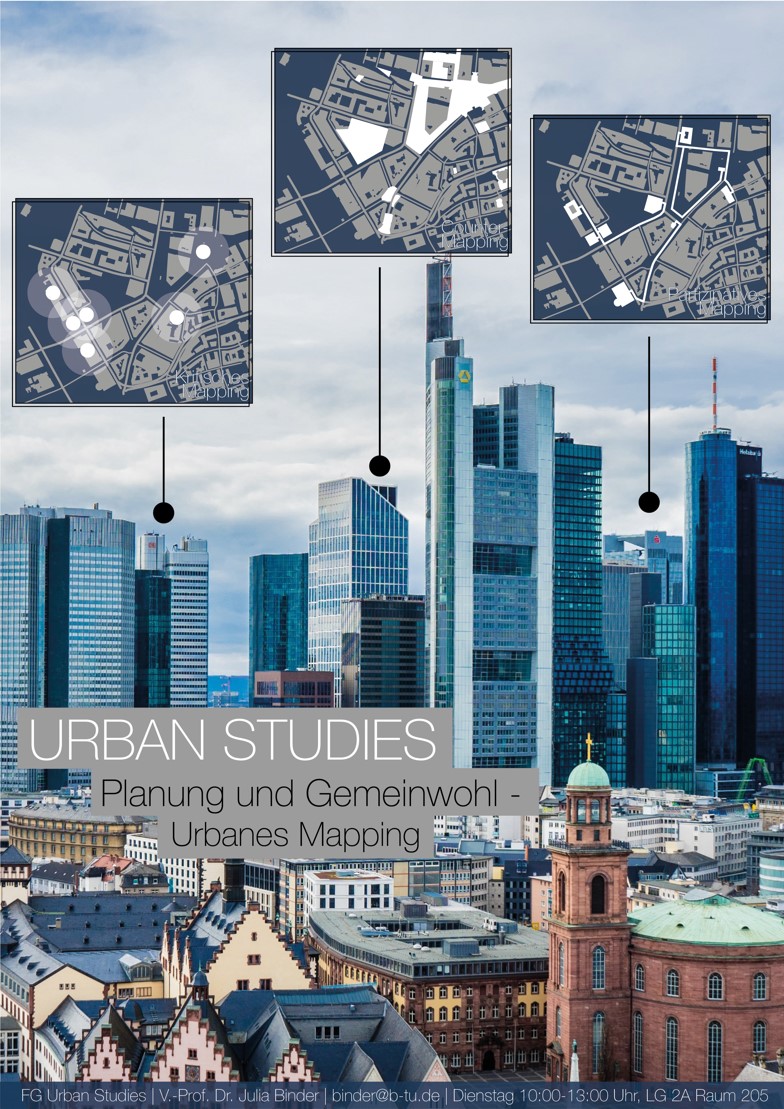
The Master's seminar deals with central questions of the common good in planning. In urban planning, the common good is an essential basis for the disciplinary self-image and the legitimization of actions. The goals and tasks of spatial development are changing, which raises the question of the implicit assumptions behind decisions and guiding principles. Planning in the 21st century is confronted with heterogeneous demands for use and competition between different actors for limited resources. In dense, urban contexts, these conflicts come to the surface in particular as conflicts over the common good.
At the beginning of the seminar, we will deal with the common good as a key theoretical concept of urban studies and read central German and English texts from planning theory of the 20th and 21st centuries.
We then move on to the neighborhood level in large cities or metropolitan areas through urban mapping. The method of mapping is to be understood as a cooperative research and design practice. Students develop maps as countermapping (visualizing the invisible), participatory mapping (visualizing everyday uses of space) or critical mapping (visualizing power relations). Approaches of ethnographic research are combined with methods of visualization. The aim is to critically examine the spatial development of public and semi-public spaces at the neighborhood level and the associated conflicts in order to promote and demand developments oriented towards the common good (including a mapping workshop and external guest contributions).
